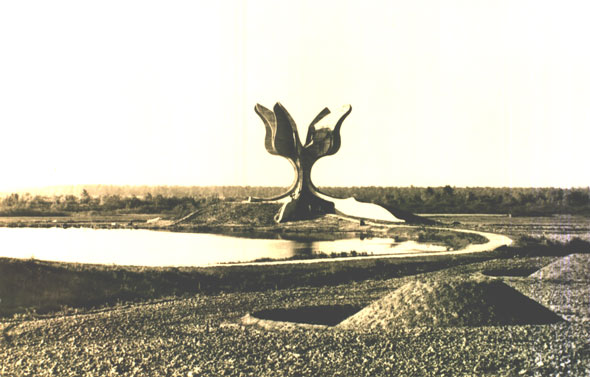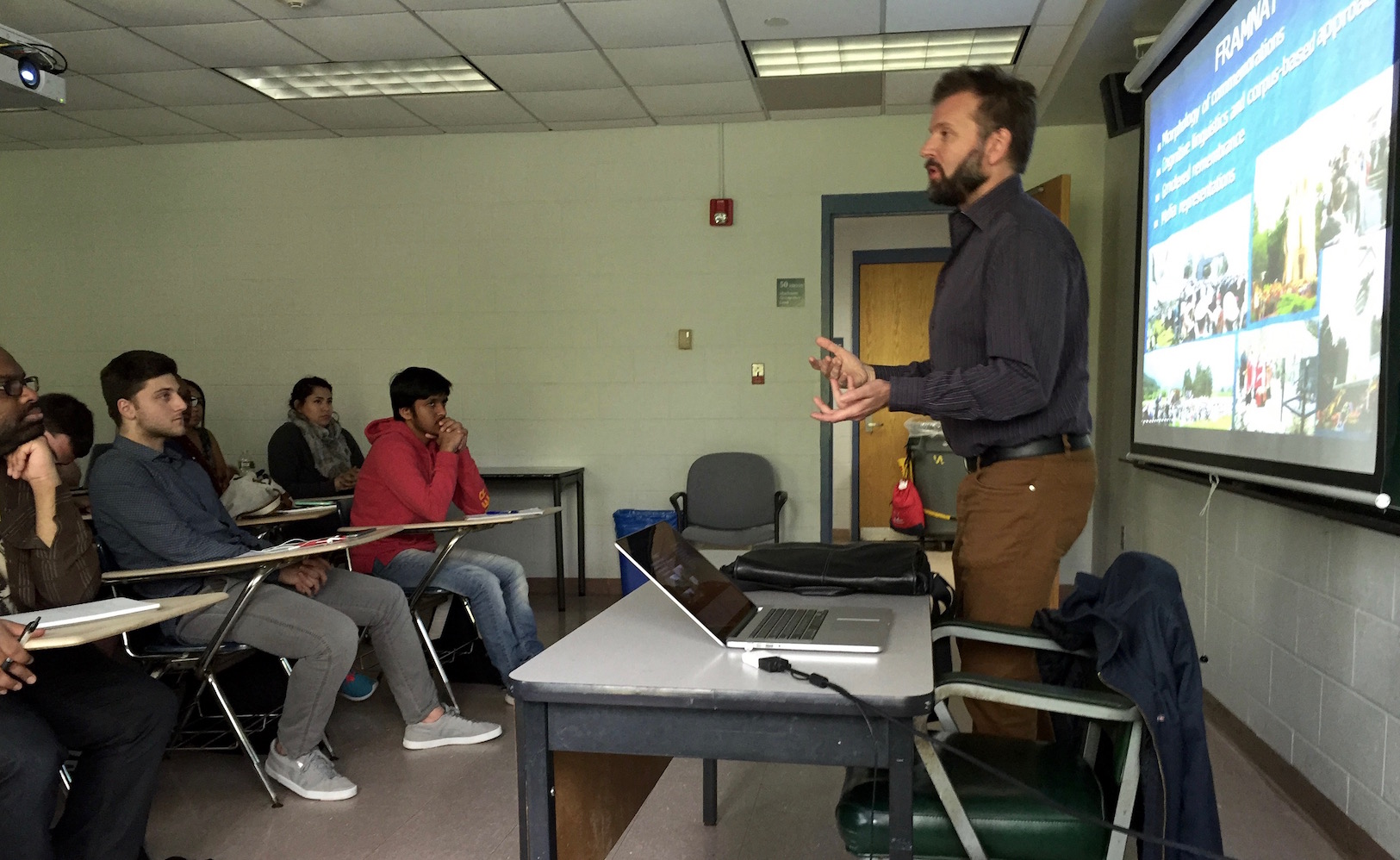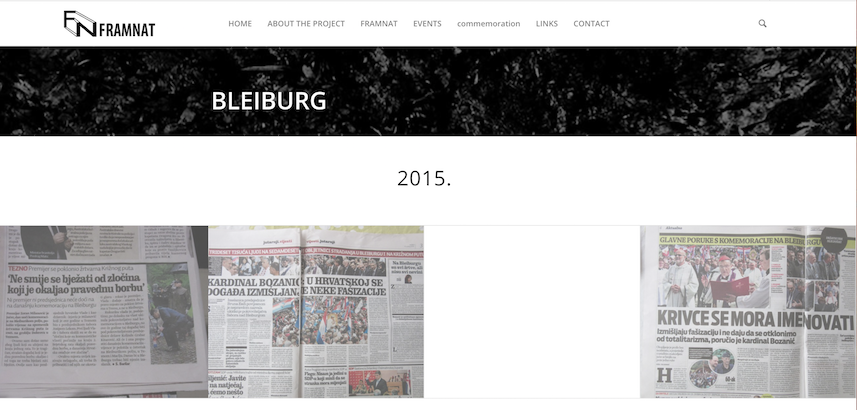Montclair State invited renowned historian, Dr. Vjeran Pavlakovic, Assistant Professor at the University of Rijeka in Croatia to give a lecture and workshop on transitional justice, cultural remembrance drawing from a digital humanities approach to dealing with the past. During his brief visit to the US from April 28-29, 2016, the guest speaker was able to meet with Montclair students, faculty and administrators to strengthen university ties. A collaboration between both institutions was already established in summer 2015 when Montclair faculty, Dr. Arnaud Kurze, Assistant Professor of Justice Studies, participated at the Cres Summer School on Transitional Justice and the Politics of Memory with several Montclair students. (The Montclair Magazine featured the 2015 trip in its fall issue).
Dr. Pavlakovic lecturing on a digital humanities project called FRAMNAT, looking at memory politics and commemoration in the Balkans.
As a Balkan scholar, Dr. Pavlakovic explained that commemorations and other political rituals are key components of a nation’s cultural memory, critically influencing the construction and reinforcement of ideological, ethnic, economic, sexual, and other identities. The Yugoslav successor states experienced three major wars, numerous territorial changes, and experiments with political systems from parliamentary democracy and monarchism to fascist dictatorship and state socialism in the twentieth century. The contested histories of World War Two and the still-living memories of the war in the 1990s permeate both domestic and foreign politics, and the ongoing manipulation of these traumas make transitional justice initiatives even more crucial for creating long-term stability. The wars of the 20th century, with their heroes and victims, play a central role in the framing of the various post-Yugoslav nationhoods. Within this culture of war, regional reconciliation (and at times even basic cooperation) is nearly impossible to achieve.
Dr. Pavlakovic's Framing the Nation (FRAMNAT) project, which is financed by Croatian Science Foundation (HRZZ), analyzes both top-down and bottom-up strategies of forming collective identities and creating a nation-building and nation-consolidating narrative through commemorative practices. The objective is to explore the challenges facing transitional justice initiatives in the Yugoslav successor states, and assess how commemorations of war can hinder or contribute to reconciliation efforts through some specific case studies.
Data set based on digitized newspaper articles for a commemoration site in Bleiburg, Austria.
During the workshop at Montclair, the focus lay on outlining the methodologies used for the FRAMNAT project, and explore more generally the question of new developments in digital humanities that can be applied to memory studies. Furthermore, participants seized the opportunity to discuss potential cooperation between scholars developing a digital humanities program at the University of Rijeka and the digital methods initiative at Montclair State University for future projects and exchanges.
Click here for a flyer of the event.


